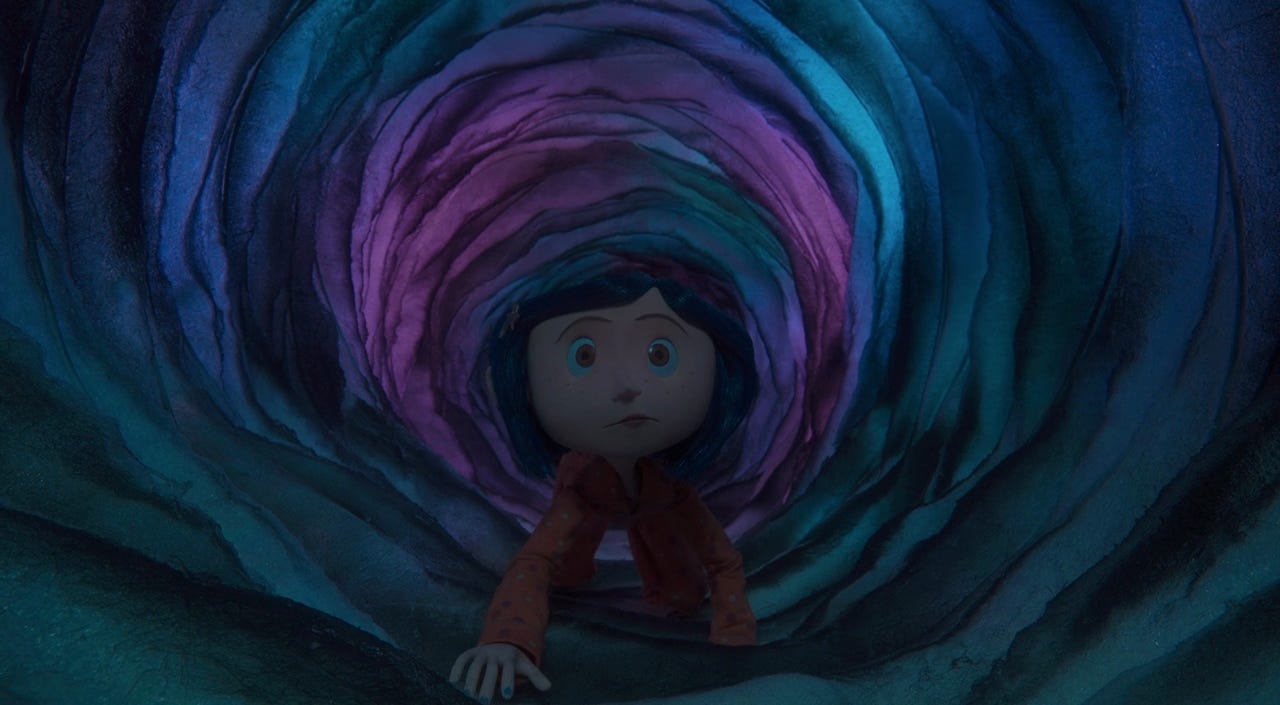The Oscar Project is reader supported. If you enjoy the reviews, you can sign up for a paid subscription to receive all full movie reviews and classic reviews. You can also buy me a movie to help me bring you more reviews like this one.
Usually I put up a review of a new film on Fridays, but today is something a little different. My son had been asking to go see Coraline in theaters this week while it was there for a 15th anniversary re-release (in 3D as well) and while we didn’t get a chance to line up a 3D showing, we did see the film the other night, the fifth time for him, but a first time watch for me!

Coraline is the story of a young girl by that name (Dakota Fanning) who has just moved to a new apartment, part of a house split into three apartments with some rather eccentric neighbors. Her parents (Teri Hatcher as her mother and John Hodgman as her father) throw themselves into work, spending their days at their computers with little time for their daughter. She is left to explore on her own and meets a boy about her age named Wybie (Robert Bailey Jr.) and his cat (Keith David).
In her exploration of the house, she finds a small door that has been wallpapered over but upon opening it, finds a tunnel into a different version of her house. The decorations are more vivid, her parents are loving and attentive, and even the odd neighbors are more approachable. Everything appears to be exactly what Coraline has always dreamed of, except everyone has buttons for eyes.
I don’t want to say much more, but you can probably guess that not everything is OK with this alternate reality. What’s the old adage? If something feels too good to be true, it probably is.
But this alternate world is where the film truly begins to shine. As the first stop motion animated film made by the now famous Laika Studios, this film immediately announced the creative team as a force to be reckoned with in the animation space. The world that they created both in the “real world” and the alternate world are so incredibly detailed one would be hard pressed to catch every last element even after 10 viewings. The models used for the production feel so lifelike even though deep down you know that they are static models being photographed one frame at a time.
Keep reading with a 7-day free trial
Subscribe to The Oscar Project to keep reading this post and get 7 days of free access to the full post archives.




